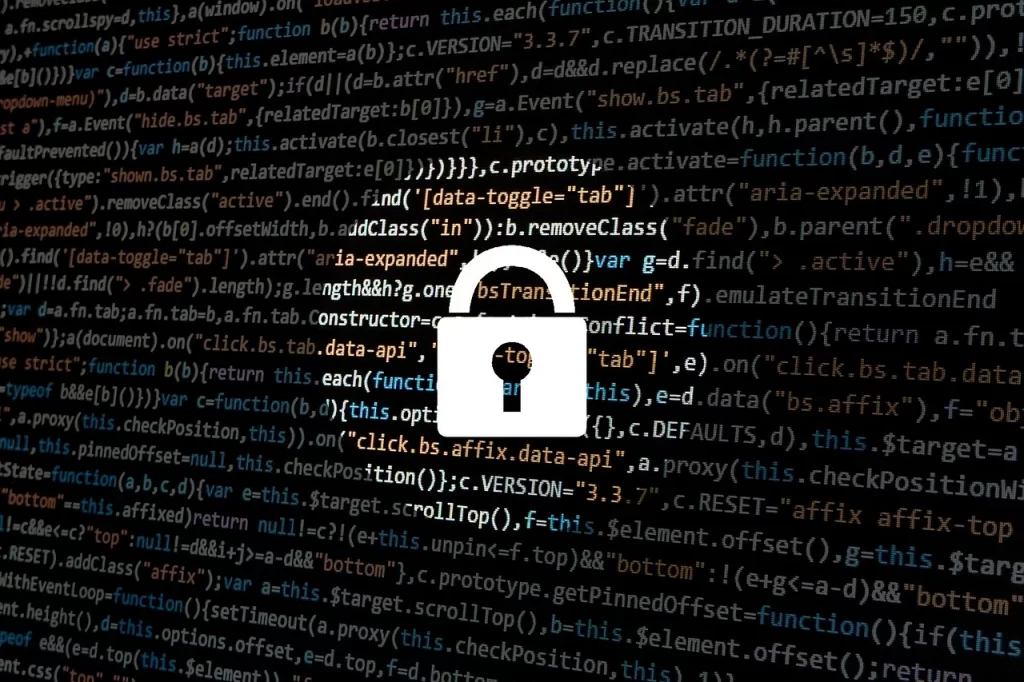In today’s digital age, sharing personal information online is almost unavoidable. From social media platforms to online shopping sites, much of our daily activities require us to input personal data. However, protecting this information is essential because it helps to avoid various risks, including identity theft, scams, and a general loss of privacy.

One way to ensure personal data remains private is to restrict online activity to secure platforms like the Mega Dice casino. Unlike many other online gambling platforms, Mega Dice protects user details, reducing the likelihood of contributing to a user’s digital footprint. In addition, players can use cryptocurrencies, adding another layer of privacy to online activity.
For several reasons, keeping personal information private is very important in today’s world. The following are a few:
Protecting Against Identity Theft
Identity theft is when someone uses your personal information, like your name, bank account details, or Social Security number to commit fraud or engage in unauthorized actions. With easy access to personal data online, identity thieves can steal your identity and cause financial and legal trouble. Thankfully, the risk of becoming a victim of identity theft is greatly reduced when you keep personal information off the internet.
Avoiding Scams and Fraud
Cybercriminals often create fake websites or send fraudulent emails to trick people into sharing sensitive information. They may promise unrealistic rewards or pose as legitimate organizations to steal money or personal details. These scams are avoidable if personal details are not posted online because cybercriminals use public information to select and attack potential victims.
Protecting Your Privacy
Every time you share personal information online, you give up a bit of your privacy. Some platforms may collect more information than you realize, and sell or improperly use the data. Keeping details such as your address, phone number, and even birthdays private helps protect you from unwanted exposure. You can protect your privacy by keeping close tabs on what details you share and who gets to see them.
Preventing Targeted Advertising
Many companies collect personal information and use it for targeted ads. They can predict your preferences by tracking your online activity and bombard you with unwanted advertisements. If you want to avoid invasive marketing tactics, limiting the amount of personal information shared online is important. This will help keep your online experience private and less commercialized.
Safeguarding Your Financial Information
Financial details, such as credit card numbers, bank account information, and PayPal credentials, should always be kept private. Sharing these details on unsecured websites or social media platforms puts your finances at risk. Hackers can exploit this information to access your accounts and can make unauthorized transactions. Protecting your financial data is critical to avoiding financial loss.
Securing Your Online Reputation
What you share online can stay forever. Even if you delete posts, there’s a chance shared information has already been captured and archived. This can impact your reputation and potentially affect future opportunities. Limiting the amount of personal information you share gives you more control over your online presence and helps you manage your reputation effectively.
Improving Digital Security
The more personal information you share, the easier hackers can exploit weaknesses. This is because cybercriminals use publicly available data to crack passwords and guess security questions. Keeping personal information private makes it harder for hackers to access your accounts and personal data.
Protecting Your Children’s Safety
Children are particularly vulnerable to online risks, including cyberbullying and predatory behavior, with reports suggesting there are about 500,000 online predators active every day. Posting personal information about children or sharing photos on social media can attract dangerous individuals. Parents can protect their children’s safety by keeping details private, reducing the likelihood of online targeting.
Ensuring Control Over Your Data
In many cases, personal data shared online is collected and stored by companies for various purposes. This includes selling information to third parties or using it for analysis. A guaranteed way to maintain control over information shared online is to keep personal information private. This way, you do not unintentionally contribute to broader data collection efforts.
Avoiding Social Engineering Attacks
Social engineering is a tactic used by cybercriminals to manipulate individuals into sharing personal information. It may involve pretending to be a trusted contact, such as a colleague or friend, to trick you into revealing sensitive data. Limiting the amount of personal information available online helps to avoid falling for social engineering attacks and protects personal identity.
Managing Digital Footprint
Every action you take online, including commenting, posting, liking, and sharing content, contributes to your digital footprint. The more personal information you share, the larger and more permanent your digital footprint becomes. Managing and limiting your online footprint ensures that only the information you want public is shared.
Protecting Your Employment Opportunities
Employers increasingly look at social media profiles and online behavior when making hiring decisions. Consequently, sharing too much personal information can affect your professional reputation and impact employment opportunities. Before sharing private details, consider your professional image and only publish safe content.
Limiting the Risk of Data Misuse
Some companies and websites collect personal information for an authorized purpose but later apply it to unrelated objectives. Unfortunately, these data could be sold to unknown buyers or used to create detailed profiles that predict user behavior. Limiting the risk of data misuse requires keeping data off the internet in the first place.
Keeping Control Over What You Share
It is important to remember that not everything you post online is secure. Even with strong privacy settings, information can still be leaked. You must remain selective and cautious about shared information to ensure that third parties do not control narratives about your life or put your personal information into the wrong hands.
In an increasingly digital world, privacy matters more than ever. Once shared online, personal information can be difficult or impossible to fully remove. By taking steps to protect personal data, you can avoid the risks of identity theft, scams, and other online threats. Keeping your personal information private helps safeguard the security of your reputation and finances. The best way to stay secure is to be mindful of what you share and take control of your online presence.
Read More:
tech trends with phaneesh murthy
most influential companies in the world
how does an emergency action plan benefit your workplace?
What is one of the best ways to get reliable information about a product?

Hayden Richards is Contributor of IntelligentHQ. He specialises in finance, trading, investment, and technology, with expertise in both buy-side, sell-side. Contributing and advising various global corporations, Hayden is a thought leader, researching on global regulatory subjects, digital, social media strategies and new trends for Businesses, Capital Markets and Financial Services.
Aside from the articles, interviews and content he writes for IntelligentHQ, Hayden is also a content curator for capital markets, analytic platforms and business industry emerging trends. An avid new media explorer Hayden is driven by a passion for business development, innovation, social business, Tech Trading, payments and eCommerce. A native Trinidadian, Hayden is also a veteran, having served with the Royal Air Force Reserves for the past 10 years.
Follow Hayden on Twitter @HaydenARichards, linkedin.com/haydenhrichards and http://www.scoop.it/u/hayden-richards










